On September 30th, Clive Pursehouse joined Decanter as its US editor. Pursehouse brings to the position a diverse background, from working for almost 20 years on a college campus to cyclocross racing to wine blogging to writing for Peloton magazine. Here, I interview Pursehouse about that background as well as his new responsibilities at Decanter. The interview has been edited for length and clarity.
(Full disclosure: I have known and been friends with Clive for approximately 15 years. He officiated my wedding.)
You grew up on east coast. How did you end up in Seattle?
I grew up in Pittsburgh. I was the first generation even in my extended family to go to college. I didn’t really have tons of ambition to be honest with you.
I went to a mid-sized school in Pennsylvania, called Indiana University of Pennsylvania in Indiana, Pennsylvania – the hometown of Jimmy Stewart. After that I went to graduate school at Western Michigan in Kalamazoo and got a master’s degree in philosophy.
Frankly, I really didn’t know what I was going to do. I knew that I had a good time in college, and it seemed like a good place to work.
I was working at University of Pittsburgh, and I interviewed for a job at the University of Washington [in Seattle], and I got that job. I relocated to Seattle in 2003. I thought I’d be here for a couple years. Here I am almost 20 years later [with a] family, home.
What was your job at the University of Washington?
I was a resident director. I lived in the residence hall on the UW campus. I managed a community of 870 college students, and then I moved up through the ranks at the university into the senior leadership for residential life.
You were there a long time.
I stayed there for 19 years. When I left the university [this fall], we were at 10,000 students living on campus.
I don’t mean to be dramatic, but in my last role, on more than one occasion I’ve had to stand over dead students’ bodies. I’ve worked with students who are considering ending their lives. I’ve worked with students who are cutting themselves. Students who’ve been sexually assaulted. It was pretty raw stuff.
It’s very heavy, emotional work, and then you layer on top of that COVID. You layer on top of that reckoning with racial injustice and helping your staff and students feel like they are safe and communities feel they are safe when things are happening. It really took a toll.
[On a lighter subject], when did you first get interested in wine?
My first year at UW. My boss was into wine. He gave me a bottle of Sagelands Red Blend, probably an $8 bottle of wine. I am from Pittsburgh, a beer culture, and am from a working-class, low-income neighborhood.
I opened [the bottle] with my wife, at the time we were just dating. We made dinner, and I said “This is actually pretty decent. This is interesting.’
My boss told me about Yakima [in eastern Washington], and that they grow wine grapes. ‘You should check it out sometime.’
I didn’t have a car when I first moved here, so we rented a car. It was February. We drove over [Snoqualmie Pass]. I remember the Yakima River in the winter, how all the trees around it freeze, and it’s just so beautiful with the ice everywhere.
We stopped at the first place that was open in Zillah, [Washington], which was Claar Cellars. The one thing that stood out for me [on that visit] – I’ll never forget this because it’s really sort of changed the trajectory of my life – is that [the woman in the tasting room] poured a mini vertical of Merlot, three different vintages. I was just fascinated that this wine, same grape, same place, three different years, could be so different. I was just hooked at that moment. That was it for me.
How did you first start writing about wine?
I was still [working] at the University of Washington. We went to Yakima for a conference. Back in the day, in the downtown Yakima restaurants, they had a thing where if you brought in a bottle of local wine there was no corkage fee. So I brought a couple of bottles of Gilbert Cellars wines to dinner.
This guy said ‘Wow. Those are nice wines. Do you like wine?’ I said I did, was just getting into it. He had a blog called Oregon Wine Blog. He said he’d love to have someone write about Washington wines [for the site]. I told him I can’t write to save my life, but sure. Then it just really took off for me. I was writing all the time. I started really cranking out articles.
What was it you liked about it so much?
The thing about wine is, one, it’s fun. There’s a lifestyle to it. The people were also a big part of the draw to me. You meet these people. They have interesting stories. You want to tell their story. Washington [and] Oregon, there’s a lot of small producers, 3,000, 5,000 cases, who are eager to tell their stories. That’s what drew me to it and kept me in it for a long time.
What made you start [your own site] Northwest Wine Anthem?
The guy I was writing for at Oregon Wine Blog moved back [to Washington], so it didn’t make sense for both of us to write about it. I was going to just walk away, but my wife said ‘You really loved that. Don’t just give it up.’
So I started Northwest Wine Anthem the same year my daughter was born, which is pretty stupid in hindsight, in 2011. I was cranking out content five, or six times a week. I had a brand new baby. What was I thinking? But I loved writing that blog.
At a certain point though, you’re doing all this work for the love. There’s no money. When the Peloton [cycling magazine] gig came around, that was really an opportunity to do some pretty unique stuff for me. So that’s where I pivoted.
You’ve done a lot of cycling and racing. When did you first get into it?
I started riding bikes as a kid. Pittsburgh is arguably the hilliest city in the country, and that includes San Francisco and Seattle. I had this crappy Huffy [bike], and I would climb up these big, big hills [in Pittsburgh]. So I had a good set of legs.
When I came out [to Seattle], I got into road bikes, and I showed up at a race one day at Seward Park, a criterium. I got smoked, bad.
Then I found out about cyclocross. Cyclocross is really a niche sport within cycling where you race what looks like a road bike. It has knobby tires like a mountain bike, but they’re quite thin. You have to jump off your bike. Sometimes you have to run up the hill and jump back on your bike. I fell in love with it.
It’s a blast. It’s a really big sport in Belgium. It keeps me young, keeps me fit.
How did writing for Peloton come about?
I had a subscription to the magazine. I noticed they did this column, maybe 200 words, around the Vuelta de España, which is a bike race that happens every year [in Spain]. It said ‘Drink Spanish wine’ and had this not really well-formed view of Spanish wine.
So I reached out to them on Twitter and said ‘Hey, you should let me write your wine content. I’m a writer. I’ve been writing this wine blog for X number of years. I race bikes.’ They said ‘Yeah, no thanks.’
So I wrote an entire 1,200-word story, maybe longer, about Oregon Pinot Noir, dirt, and bike racing in mud, and I sent it to them. It sort of took off from there.
When was this?
About 10 years ago. I was doing [Northwest Wine Anthem], I was writing for Peloton, and then I was working a full-time job and trying to help wrangle a 2 or 3-year-old, challenging years for kids and new parents. I was out of my mind.
So you eventually stopped writing about wine?
You have to let some stuff go. For a long time, I was doing a lot of rock climbing, especially bouldering, and I was trying to do bike racing. I was pretty mediocre at both of them. I had to focus on one. I felt the same thing with writing. So I stopped writing about wine.
You’ve done a lot of writing and travel for Peloton over the last 10 years. What has that been like?
I’ve gotten to see the world. I’ve ridden bikes in Peru in the Sacred Valley, in Burgundy. I’ve been to probably 25 countries. Mountain biking in Morocco. Who gets to do that stuff, a poor kid from Pittsburgh?
I’m just so fortunate that they took a chance on me, and honestly, without that opportunity, I’m probably not in this Decanter position either.
You had a bad cycling accident earlier this year. What happened there?
I crashed a mountain bike in Jordan, on April 18th. I was near the Syrian and Israeli borders. I fractured my pelvis in a few places. I was [put] in a pickup truck. I was in this backcountry hospital. Then I got to Amman and spent a night in the hospital and a few nights in a hotel. They were amazing to me, the way they took care of me.
That’s the first really bad crash I’ve ever had. I’m really lucky because I didn’t need surgery. I’m fully recovered and riding again. It wasn’t my head. It wasn’t my neck. It wasn’t my back, my spine. You ride enough, you’re gonna crash your bike. It was just a really unfortunate set of circumstances.
But I couldn’t stand. I couldn’t walk. I was in a wheelchair for a few weeks. I was on crutches for nine weeks. So that really slowed down the job hunt (laughs). And then I got this email [from Decanter].
What will your responsibilities be at Decanter?
In addition to editing and commissioning stories, I’ll be covering Oregon and Washington. That will mean a vintage report each year from each state. Then, for both states, writing a couple of AVA reports annually and some producer profiles.
There are also some interesting things being done in surprising parts of the country, further afield places, like the American Wine Project up in Wisconsin. There’s a winery called Old Westminster in Maryland doing some really cool stuff. There’s a winery in Detroit.
There’s some really interesting things happening [in broader US wine], and I want to make sure we’re writing about that, whether it’s me writing those stories or getting other writers to look at some of those stories too.
It seems like Decanter is increasing its US coverage significantly. You’re their first full time US editor, correct?
Decanter is owned by a company called Future PLC. Future has a lot of brands, a lot of magazines, websites, [and] a lot of tech-focused stuff especially. They really want to make a big push into the United States, both from a coverage point of view and also from a readership point of view.
So they identified me, and there’s one other person who’s on staff, Jonathan Cristaldi. He’s our Napa correspondent. Then we have a team of other writers, some of whom have been working for the magazine for a long time. I’m looking to expand that set of writers and really diversify that group. That’s a priority of mine as well, making sure we have different voices at the table.
What excites you about what’s going on in Oregon and Washington right now? As you’ve said, you focused your attention away from wine for a while and are now coming back to it.
Washington is the state that really started my love affair with wine. It’s gotten a lot bigger. I hadn’t been to Red Mountain in 10 years but was there [this fall]. There are a lot more vineyards there now. You’re seeing a changing of the guard. There’s new names and new faces in wine. It’s exciting to see the evolution of Washington wineries.
Oregon has always been edgier and a little more imaginative than its cousin to the north. I think that continues both in the [Willamette] valley and in Portland proper, even down south in the Rogue and Applegate valleys. You have a younger, sort of edgier winemaking scene there. I think it’s exciting.
Having taken so much time off [from writing about wine], I feel kind of like a kid in a candy store. I’m excited to see what’s new and what’s the same that I really loved.
Are there other things you think are important for readers to know?
Decanter is a bit different. It’s a British magazine. It’s written for a British audience, even though the US makes up more than a third of the online readership. We’re trying to build up a lot of the American content. I want to move us to more substantial, in-depth coverage of regions, producers, trends, and styles and not do as much of what my friend used to call snackable content.
Pictures courtesy of Clive Pursehouse.


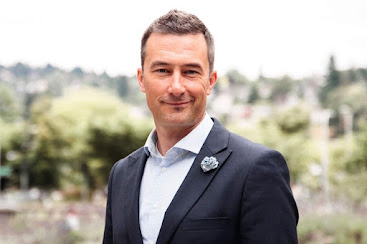

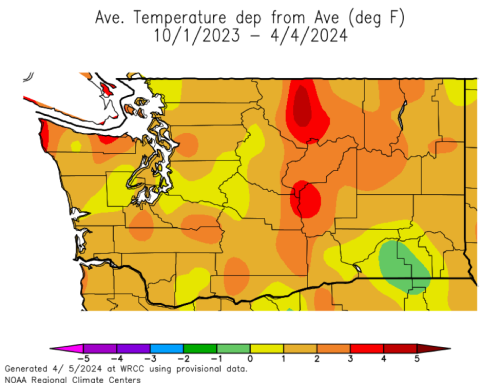
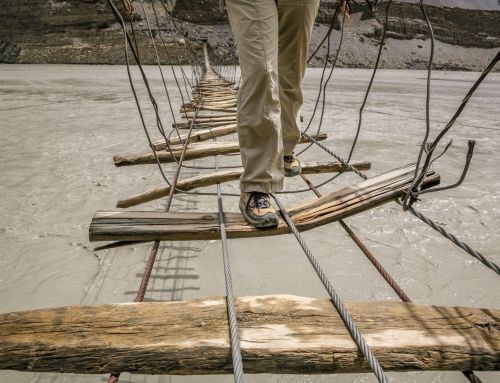
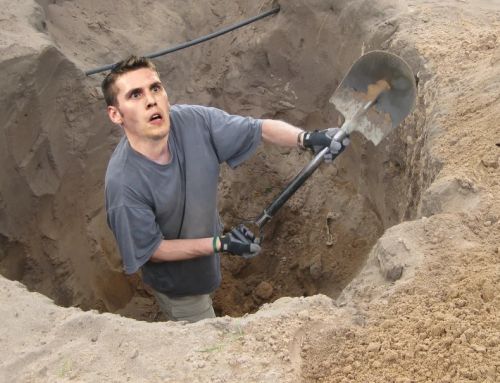
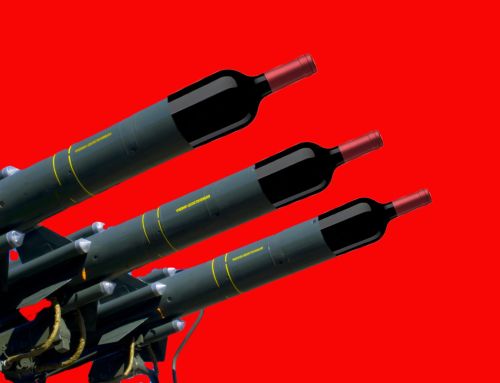
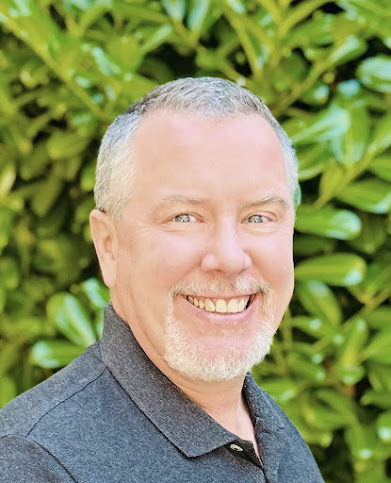
Leave A Comment